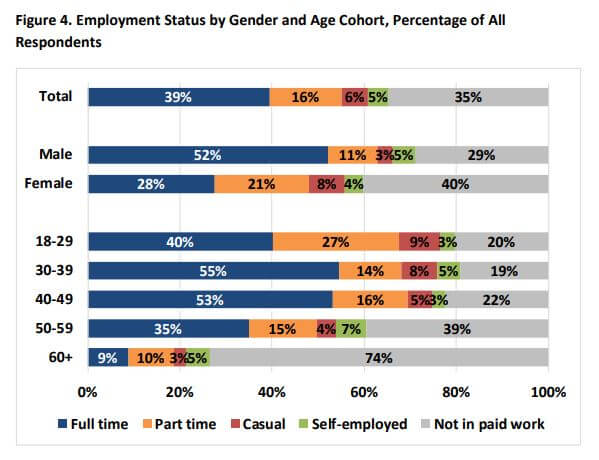Last month, The Australia Institute’s Centre for Future Work released its annual report on the state of unpaid overtime in the country. Provocatively titled, “Working from home, or living at work?”, it was released to coincide with the 13th annual Go Home On Time Day.
The research’s major finding was that unpaid overtime has continued to increase since 2019. That year, the average employee worked 4.6 hours of weekly unpaid overtime, which increased to 5.3 hours in 2020 and 6.1 hours in 2021.
Results were based on telephone polling, including 1,604 Australians polled over three days in late August. Respondents were asked about the work they did over the preceding seven days.
Unsurprisingly, full-time workers did the most unpaid overtime, at almost 7 hours per week on average. This means that approximately 18% of hours worked by full-time employees are unpaid.
The proportion, though, is higher for part-time and casual workers. Part-time workers worked an average of 4.5 unpaid hours per week and casuals worked 5 hours per week.
This means that around a quarter of all hours worked by casuals and part-timers are unpaid. 44% of part-timers and 49% of casuals report being anxious to increase their hours of paid work.
Women are slightly more likely to be in need of more hours than men. According to this study, that comes down to women’s over-representation in part-time and casual work.

The figures show the two sides to the pandemic. On one hand, casuals and part-timers are significantly underemployed, having been cut loose during lock-down and associated down-turns.
“It is clear that the growing use of insecure and casual employment experienced in recent years in Australia has shifted economic risk from employers to workers,” the Australia Institute said in commentary on the findings. The institute describes casualisation as creating a “just-in-time workforce.”
At the same time, even full-time workers – two-thirds of whom did at least some of their work from home since March 2020 – have been doing more unpaid work. This comes even as caring responsibilities augment with health challenges and school closures.
“The experience of the pandemic seems to indicate that home work may not necessarily represent a step toward a better, more humane work-life balance for workers,” say The Australia Institute. “In many cases it has allowed a further incursion of work into people’s personal time and indeed privacy, and a further undercutting of Australia’s set of minimum standards around employment (including standard hours, overtime, and penalty rates).”
Follow Christian on Twitter for more news updates.